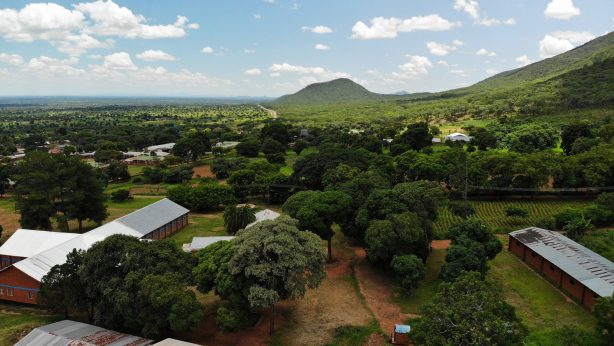Permaculture in Schools – Our Approach to Improving Student Wellbeing in Malawi
Challenges faced by rural schools in Malawi
Rural schools in Malawi, like in many parts of sub-Saharan Africa, are a focal point in rural communities. They are seen as sources of hope as the education received may, if all goes well, translate into a better quality of life for their children. Sadly, the reality is that these crucial centers of learning are poorly funded. In Malawi, the typical rural primary school has no electricity or running water. Students tend to line up to use a few unhygienic pit latrines for sanitation, at times the stench reaches parts of the school block. Sometimes, students simply relieve themselves in the bush, a particularly distressing resort for female students. Students also come to class on an empty stomach and are only able to concentrate for very short periods of time. Some do not come to class at all, as their parents may prioritize working on their farm over attending classes.
Students looking to sit for high school entrance exams are often limited in their ability to study at night due to a lack of lighting at home. These are some of the challenges that our team in Malawi seeks to address when working in partnership with rural communities. Our intention is to work together to develop long-term solutions that can improve student wellbeing.

A permaculture approach
Underpinning our partnerships with rural schools, is permaculture, a design science for sustainability. As such our school projects start with training a cross-section of students, teachers, and parents about permaculture and how it presents practical, ecologically sustainable solutions to these challenges. These training sessions involve walking around the schoolyard to better understand the challenges and opportunities that exist, as well as reviewing case studies of other schools that have implemented permaculture projects. This leads to the development of a design plan for the school that is steered by a permaculture committee comprising senior students, teachers, and parents. Having worked in partnership with five schools to date, our collaborations typically involve four primary components:
- Establishing a school food garden that can sustain a breakfast program for all students
- Installing solar electricity so that the school has lighting for night classes, and an ability to use electronic devices.
- Constructing eco-sanitation toilets and urinals so that students have hygienic facilities while also generating nutrients to build soil fertility.
- Constructing a rainwater harvesting system so that the school has access to stored water for sanitation and irrigation purposes.
As you may take note, this is a holistic approach to addressing fundamental needs such as food, water, energy, and sanitation. The video below draws upon the example of Dwalala Primary School (700+ students) to illustrate what these projects look like in practice.
To date, we have supported five primary schools in Malawi (Kapita, Lilongwe, Kasungu) to implement their permaculture plans over a 3-5 year period. This has already had a positive impact on the lives of 4,500+ students, and because they are long-term initiatives, they are set to benefit thousands of students who enroll at these schools in the years to come. This has involved considerable collaboration between community members, and across generations (elders to students). Our role has to provide access to the necessary technologies, training, and support. This effort is led by our irrepressibly passionate Project Manager Bright Msuku and his permaculture coordinators.

It is important to note that this transformative work has vital ripple effects. Our partner schools also serve as influential demonstration points for sustainable practices. In particular, it allows rural farmers to observe a number of techniques in terms of organic cultivation, land, and water management that they can gradually absorb into their own farming practice. In our experience, this is a viable means through which we can positively influence farming practices so that they are more profitable (less reliance purchasing seeds and fertilisers, more diverse cash crops) and ecologically sustainable (building soil health instead of eroding it). Our permaculture coordinators, who are often based on-site during the first two years of a project, are on hand to offer guidance and facilitate the wider adoption of permaculture practices.

Help us bring permaculture projects to more schools in Malawi
In 2020, we are looking to support permaculture projects in two additional schools in Malawi’s Mchiji District. We’d deeply appreciate your support in this effort. A one-off donation, or better still, a small regular contribution, can go a long way towards enabling us to improve the lives of more students in Malawi.


